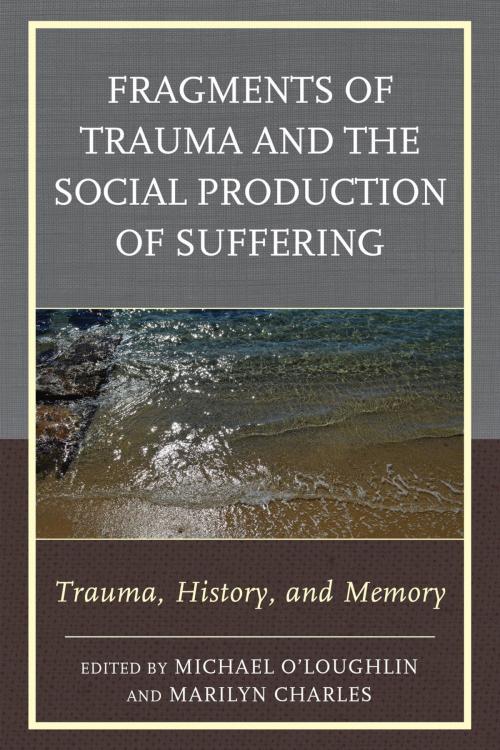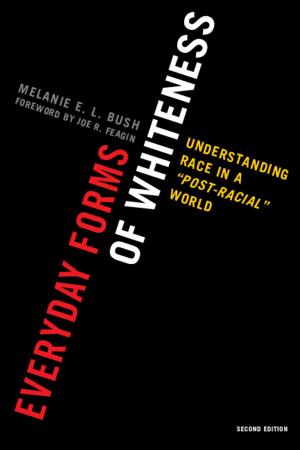Fragments of Trauma and the Social Production of Suffering
Trauma, History, and Memory
Nonfiction, Health & Well Being, Psychology, History, Family & Relationships, Family Relationships, Death/Grief/Bereavement, Cognitive Psychology| Author: | Judy Atkinson, Claude Barbre, Marilyn Charles, Avigail Gordon, Marie C. Hansen, Richard T. Johnson, Ingo Lambrecht, Karen L. Lombardi, Barbara Ann McLeod, Jeff Moore, Cate Osborn, Michael O'Loughlin, Trisha Ready, Michael B. Salzman, Cora Smith, Annie Stopford, Christine Thornton, Kirkland C. Vaughans, Janice A. Walters | ISBN: | 9781442231863 |
| Publisher: | Rowman & Littlefield Publishers | Publication: | November 5, 2014 |
| Imprint: | Rowman & Littlefield Publishers | Language: | English |
| Author: | Judy Atkinson, Claude Barbre, Marilyn Charles, Avigail Gordon, Marie C. Hansen, Richard T. Johnson, Ingo Lambrecht, Karen L. Lombardi, Barbara Ann McLeod, Jeff Moore, Cate Osborn, Michael O'Loughlin, Trisha Ready, Michael B. Salzman, Cora Smith, Annie Stopford, Christine Thornton, Kirkland C. Vaughans, Janice A. Walters |
| ISBN: | 9781442231863 |
| Publisher: | Rowman & Littlefield Publishers |
| Publication: | November 5, 2014 |
| Imprint: | Rowman & Littlefield Publishers |
| Language: | English |
Fragments of Trauma and the Social Production of Suffering: Trauma, History, and Memory offers a kaleidoscope of perspectives that highlight the problem of traumatic memory. Because trauma fragments memory, storytelling is impeded by what is unknowable and what is unspeakable. Each of the contributors tackles the problem of narrativizing memory that is constructed from fragments that have been passed along the generations. When trauma is cultural as well as personal, it becomes even more invisible, as each generation’s attempts at coping push the pain further below the surface. Consequently, that pain becomes increasingly ineffable, haunting succeeding generations. In each story the contributors offer, there emerges the theme of difference, a difference that turns back on itself and makes an accusation. Themes of knowing and unknowing show the terrible toll that trauma takes when there is no one with whom the trauma can be acknowledged and worked through. In the face of utter lack of recognition, what might be known together becomes hidden. Our failure to speak to these unaspirated truths becomes a betrayal of self and also of others. In the case of intergenerational and cultural trauma, we betray not only our ancestors but also the future generations to come. In the face of unacknowledged trauma, this book reveals that we are confronted with the perennial choice of speaking or becoming complicit in our silence.
Fragments of Trauma and the Social Production of Suffering: Trauma, History, and Memory offers a kaleidoscope of perspectives that highlight the problem of traumatic memory. Because trauma fragments memory, storytelling is impeded by what is unknowable and what is unspeakable. Each of the contributors tackles the problem of narrativizing memory that is constructed from fragments that have been passed along the generations. When trauma is cultural as well as personal, it becomes even more invisible, as each generation’s attempts at coping push the pain further below the surface. Consequently, that pain becomes increasingly ineffable, haunting succeeding generations. In each story the contributors offer, there emerges the theme of difference, a difference that turns back on itself and makes an accusation. Themes of knowing and unknowing show the terrible toll that trauma takes when there is no one with whom the trauma can be acknowledged and worked through. In the face of utter lack of recognition, what might be known together becomes hidden. Our failure to speak to these unaspirated truths becomes a betrayal of self and also of others. In the case of intergenerational and cultural trauma, we betray not only our ancestors but also the future generations to come. In the face of unacknowledged trauma, this book reveals that we are confronted with the perennial choice of speaking or becoming complicit in our silence.















